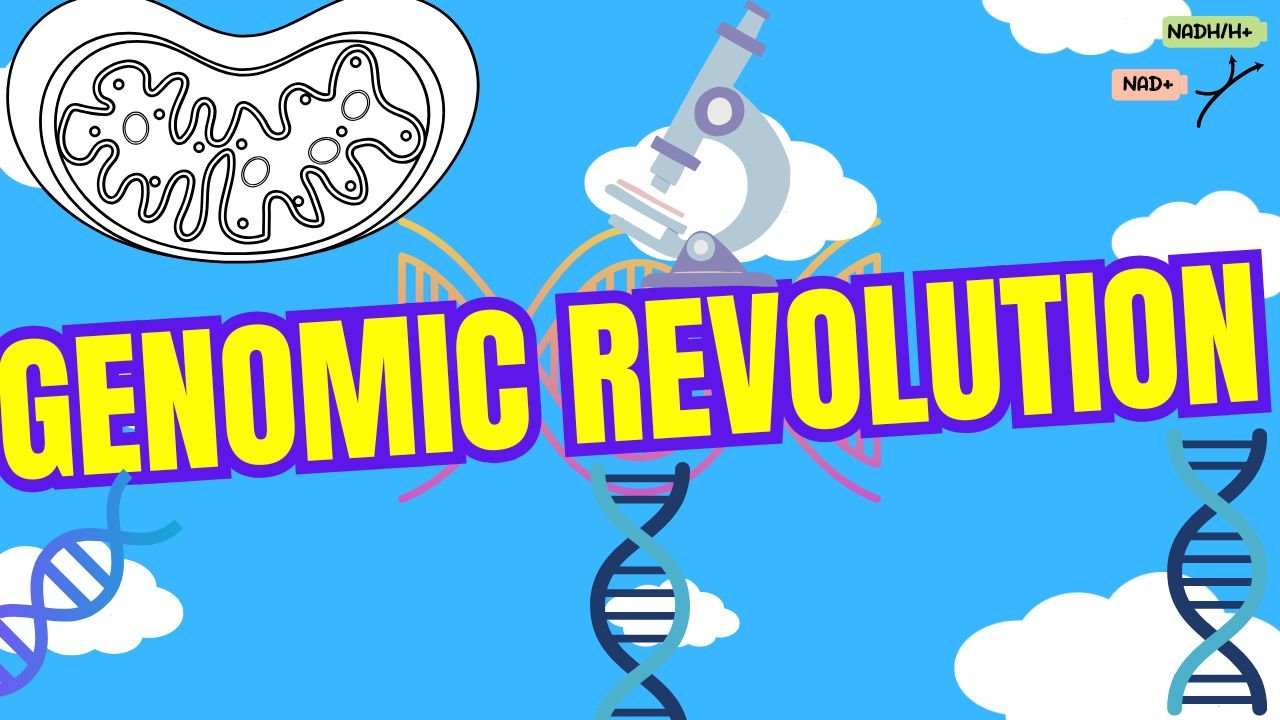What is the Genomic Revolution?
The genomic revolution represents a transformative shift in medicine and biology, rooted in foundational advancements in our understanding of genetics. Initiated in the late 20th century, it is primarily characterized by breakthroughs in DNA sequencing technologies and gene editing tools, which have redefined scientific research and healthcare. By enabling researchers to analyze entire genomes quickly and cost-effectively, these innovations have paved the way for personalized medicine, where treatments can be tailored to an individual’s unique genetic makeup.
One of the landmark achievements in this domain was the Human Genome Project, an international collaborative effort that successfully mapped the entire human genome. Completed in 2003, this ambitious initiative not only provided an invaluable reference for researchers worldwide but also illuminated the genetic underpinnings of numerous diseases. The culmination of such endeavors has fundamentally reshaped our approach to disease prevention, diagnosis, and treatment.
Subsequent advancements, such as CRISPR-Cas9 gene editing technology, have further accelerated the momentum of the genomic revolution. This tool allows for precise alterations to the genetic code, opening avenues for correcting genetic disorders, enhancing agricultural productivity, and even combating infectious diseases. As a result, the implications of these technologies extend beyond traditional biomedical research, impacting ethical, social, and regulatory considerations in the life sciences sector.
Moreover, the integration of genomic data with other scientific disciplines, including bioinformatics and systems biology, heralds a new era of interdisciplinary research. This convergence facilitates a comprehensive understanding of gene interactions and their effects on health, pointing towards a future where genomic insights could lead to novel therapeutic strategies. Overall, the genomic revolution signifies a profound evolution in scientific inquiry, with ongoing developments promising to reshape our world in the 21st century.
Impact on Medicine and Healthcare
The genomic revolution has fundamentally transformed the landscape of medicine and healthcare, paving the way for significant advancements in personalized medicine and disease prevention. By leveraging genomic information, healthcare professionals can now tailor treatments to match individual genetic profiles, ultimately leading to more effective and targeted healthcare solutions. This paradigm shift moves away from the traditional one-size-fits-all approach, emphasizing the importance of understanding the unique genetic makeup of each patient.
One of the major implications of genomics in medicine is the enhanced capability for early disease detection. Through genomic sequencing and analysis, clinicians can identify genetic predispositions to a variety of diseases, allowing for proactive monitoring and preventive measures. For example, BRCA1 and BRCA2 gene mutations are linked to an increased risk of breast and ovarian cancer. Women with these mutations can undergo more rigorous screening and consider preventive surgeries, significantly reducing their risk of developing cancer.
The development of targeted therapies further exemplifies the impact of genomics on healthcare. Cancer treatment, in particular, has benefited from this approach. Treatments such as trastuzumab for HER2-positive breast cancer are specifically designed based on the genomic characteristics of tumors, leading to improved outcomes compared to standard therapies. Case studies demonstrate that patients receiving these tailored therapies often experience fewer side effects while achieving better therapeutic efficacy.
Moreover, the translation of genomic data into actionable insights has sparked a new era of drug discovery and development. Pharmaceutical companies are increasingly utilizing genomic information to identify potential drug targets, streamlining the development process and optimizing treatment plans for patients. This integration of genomics into healthcare signifies a hopeful trajectory towards more personalized, perceptive, and preventive medical practices that have the potential to revolutionize patient care as we know it.
Ethical Considerations and Challenges
The genomic revolution has ushered in unprecedented advancements in medicine and science, yet it simultaneously raises profound ethical dilemmas and challenges that necessitate careful examination. One primary concern involves genetic privacy, highlighting the complexities associated with the collection, storage, and sharing of genomic data. As individuals undergo genetic testing, the vast amounts of sensitive information generated can potentially expose them to privacy violations. It is crucial for stakeholders to ensure that robust safeguards are in place to protect this data from unwarranted access or misuse.
A related ethical issue pertains to informed consent. In the context of genomic research and clinical applications, individuals must be fully aware of how their genetic information will be used. This presents challenges, as the intricacies of genomic data can be difficult for laypersons to comprehend. Researchers and healthcare providers have an obligation to communicate potential risks and benefits transparently, thus enabling individuals to make informed decisions regarding their genetic data.
Another pressing concern is genetic discrimination, which can occur when individuals face unfavorable treatment based on their genetic predispositions. There is an ongoing debate regarding the extent to which genetic information should influence insurance coverage, employment opportunities, and other critical areas of life. Safeguards against discrimination are essential to prevent stigmatization and ensure equitable access to healthcare services.
The emergence of gene editing technologies, such as CRISPR, brings forth additional ethical questions, particularly regarding the implications of editing human genes. The potential to eradicate genetic disorders raises hopes but also ignites debates on ‘designer babies’ and socioeconomic disparities in access to such technologies. This discourse underscores the need for comprehensive regulatory frameworks that govern the responsible use of genomic technologies, ensuring they are applied for the greater good and with equitable access. As society progresses through this genomic revolution, addressing these ethical challenges will be pivotal in shaping the future of medicine and science.
The Future of Genomics
The future of genomics promises to be transformative, extending far beyond the realms of medicine into diverse fields such as agriculture, environmental science, and biotechnology. As the genomic revolution gathers momentum, several key trends and innovations are likely to define its trajectory. One notable trend is the increasing integration of genomic data with artificial intelligence, enhancing our ability to analyze and interpret vast datasets more efficiently. This synergy could lead to personalized genetic insights that inform not only medical decisions but also agricultural practices, enabling crop strains that are more resilient to climate change or diseases.
In agriculture, genomic technologies are set to revolutionize food production by developing genetically modified organisms (GMOs) that can thrive in adverse environmental conditions. As pressures from population growth and climate change rise, the ability to engineer crops for stress resistance and higher yields becomes paramount. Concurrently, advancements in gene editing tools, such as CRISPR, are making it easier and more precise to alter genetic material, resulting in enhanced traits without the introduction of foreign DNA. This could address ethical concerns associated with conventional GMOs and lead to greater public acceptance of genetically tailored food sources.
Environmental science is also experiencing a genomic revolution with applications in biodiversity conservation and ecosystem management. Genomic techniques facilitate the monitoring of species populations, understanding genetic diversity, and identifying organisms’ responses to environmental stressors. This information is crucial for developing strategies to protect endangered species and restore habitats.
While the advancements in genomics present significant potential, they also pose challenges related to societal values and ethical considerations. As genomic technologies become more prevalent, public perceptions may shift, necessitating ongoing dialogue to balance innovation with ethical responsibility. Ensuring equitable access to genomic advancements will be essential to prevent disparities in health outcomes and agricultural productivity. The future of genomics ultimately hinges on our collective ability to navigate these complex landscapes thoughtfully.





